| Scotland and the 45 14:43 - Nov 19 with 849 views | Churchman |
No connection to Scotlands WC qualification, it’s actually 280 years since the Jacobite Rising. Bonnie Prince Charlie all that jazz. Most of the modern view is really a romanticised version of the events - Victorian reconstruction, Walter Scott etc.
Basically, Charles Stuart was James second’s (seventh in Scotland) grandson born in Rome in 1720. He was attempting to get the throne back for his father/the Stuarts. The clan system was already in decline in Scotland and as many were against the rising as for it for a variety of reasons. It wasn’t just England v Scotland.
There was perceived support in England (including London) and France but Charles had a couple of problems. Some, but not all were hostile to the Act of Union of 1707. Others thought it just couldn’t succeed. Religion and his belief in the divine right of kings - knocked on the head 100 years earlier. He was not universally popular with other important figures such as Murray who detested him.
The first battle was at Prestonpans where incompetent John Cope’s army was routed when attacked from the ‘wrong’ direction and collapsed in the face of the Highland Charge. The Scots then agreed to invade England. It did so on the promise of English and French support by Charlie. As they marched the hoped for numbers didn’t materialise.
A few French and Irish pitched up and the French produced a few supplies. An English Manchester regiment was raised but that was about it. Charlie had lied and the other senior figures’ trust went down the pan. They reached Derby which was a remarkable achievement really, but fear of being cut off and lack of support meant they went back the way they came. In January 1746, the battle of Falkirk Muir was fought. A narrow victory over the English army commanded by another idiot called Hawley didn’t achieve much. The Scottish army was probably at its peak at this point.
Cumberland was appointed to command the English army. They were a poor old lot. The best of the army was in Europe fighting the war of Austrian succession. Cumberland trained them hard though and that made the difference at Culloden in April 1746.
The main tactic of the Scots was the Highland Charge. Literally as it sounds a block of wild, terrifying men would fall upon the enemy who would basically run, as in Prestonpans and Falkirk. At Culloden the Scots were forced to attack Cumberlands left due to boggy ground and it got a bit chaotic. Cumberland had the men trained to bend, not break and this they did.
The Scots were not equipped to stand their ground. Not only were they shredded by better artillery and mortars, but the English were trained not to bayonet or shoot the man in front, but the man next to him rendering the small shields the Scots had useless. From their army of about 6000, 1500 to 2000 were killed or wounded. The English lost just over 300.
Charles of course famously got away, promising to return with a new army. He died a broken embittered man in Rome in 1788, mourned by nobody until the Victorians came along. The Scottish people paid a heavy price though a fair number of the more notable figures were pardoned, including Flora MacDonald. Not so lucky were the English Manchester regiment, who were mostly executed.
The Highland Charge must have been appalling to face. It was wild version of the French tactic in the Napoleonic wars of attack by column. All was not as it seemed though. Basically, the maddest, wildest and bravest were in the front. The steady Eddies that would follow and not run were just behind. The majority who were scared to death or just didn’t want to be there were at the back. In other words, the same as any other body of men. Human nature doesn’t change.
A lot of the Jacobites were forced into it too. Either they were ordered by their Lord and master or threatened. In other words would you like to join the cause or have your house burned down and your family starve? Or we can just kill you now. ‘I’ll volunteer!! Hooray for the Italian/Frenchy bloke, pass me a Claymore!’
[Post edited 19 Nov 15:39]
| 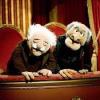 | | |  |
| Scotland and the 45 on 17:55 - Nov 19 with 712 views | DJR |
Certainly a lot of romanticism involved, and I do wonder if the Jacobites had won, whether the Scottish Enlightenment, driven by reason rather than religion, would have happened or been so influential.
Interestingly, when I was in St Peter's ten years ago, I was astonished to come across the Monument to the Royal Stuarts, all three of whom are buried in the crypt.
https://en.wikipedia.org/wiki/Monument_to_the_Royal_Stuarts [Post edited 19 Nov 17:55]
| 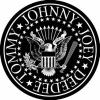 | |  |
| Scotland and the 45 on 18:36 - Nov 19 with 686 views | Churchman |
| Scotland and the 45 on 17:55 - Nov 19 by DJR |
Certainly a lot of romanticism involved, and I do wonder if the Jacobites had won, whether the Scottish Enlightenment, driven by reason rather than religion, would have happened or been so influential.
Interestingly, when I was in St Peter's ten years ago, I was astonished to come across the Monument to the Royal Stuarts, all three of whom are buried in the crypt.
https://en.wikipedia.org/wiki/Monument_to_the_Royal_Stuarts [Post edited 19 Nov 17:55]
|
It’s an interesting question. My understanding is that Scotland was already changing, as was the rest of Britain. The Stuarts were an odd bunch and not popular, but then neither were their successors.
Had the Jacobites won the problem with Charles was his religion, which had seen James 2nd booted out and his belief in the divine right of Kings. That would have led to exile or another Civil War. Parliament would never have given in to the King having already lopped Charles 1st’s head off.
Charles 2nd (the not so merry monarch) wrested back certain powers, such as to break his agreement and see the 59 Regicides hunted down and to spend boatloads of money, but he was always subject to the will of parliament and could only go so far.
In terms of Scottish Enlightenment my knowledge of it is woefully inadequate, but the roots of it long pre-date the Jacobites. Following 1707, while its Parliament moved to London ankle its structures from law, to religion to universities and learning remained the same and different to this day.
I think you could argue that had the Jacobites won you might have seen more English enlightenment, but it’s a big ‘might’ given England’s structures had also long been in place and within half a century the Agrarian then Industrial Revolutions would come rolling in driven by amazing people from across Britain. |  | |  |
| Scotland and the 45 on 18:50 - Nov 19 with 670 views | Guthrum |
Hawley wasn't an idiot. He was marginally unfortunate at Falkirk - the battle was fought in a raging storm - but was also the man who trained the troops in the new bayonet drill which proved so effective at Culloden.
Cope was outmaneuvered when the Jacobites were shown a way through the supposedly impassable (for an army) marsh which protected his flank and rear, turning an apparently strong position into a trap. There's not a lot you can do about that.
Don't think it's fair to say Charles lied about the levels of English support. More that he was overoptimistic and misled by Jacobite activists south of the border trying to magnify their own importance and following. Also placing too much emphasis on the Catholic traditions of Lancashire and Cheshire as a recruiting tool. Bear in mind he'd never lived in England and only had the reports of others to go on.
The Stuarts were pretty cynical in making use of the Highland clans. When kings of Scotland, they were continually sending out letters of fire and sword against the annoying cattle raiders from the mountains. Quite a bit of the basis for clan support was in furtherance of already very long-running rivalries (e.g. challenging the spread of hegemony by the Campbell Earls and Dukes of Argyll), largely irrelevant to who sat on the throne in London. | 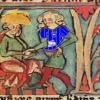 |
|  |
| Scotland and the 45 on 19:17 - Nov 19 with 652 views | Guthrum |
| Scotland and the 45 on 17:55 - Nov 19 by DJR |
Certainly a lot of romanticism involved, and I do wonder if the Jacobites had won, whether the Scottish Enlightenment, driven by reason rather than religion, would have happened or been so influential.
Interestingly, when I was in St Peter's ten years ago, I was astonished to come across the Monument to the Royal Stuarts, all three of whom are buried in the crypt.
https://en.wikipedia.org/wiki/Monument_to_the_Royal_Stuarts [Post edited 19 Nov 17:55]
|
I don't think there's any likely circumstance under which the Jacobites could have won in 1745-6.
If they'd carried on towards London, two armies were converging on them from different directions, together greatly outnumbering Charles' forces. Surrounded, hundreds of miles from their support base, even a Highland charge (from the rapidly shrinking numbers who had marched south - desertion was rife) wouldn't have got them out of that. They had very little in the way of cavalry or artillery.
The chance of George II giving up and fleeing as James II had was practically nil. Both contemporaries and modern historians thought that. He had no need to, the army and most of the political structure stayed loyal (unlike in 1688).
Having retreated, they didn't have the forces to hold onto southern Scotland and, once pushed north to Inverness, lacked any kind of real power base to sustain the rebellion. |  |
|  |
| Scotland and the 45 on 21:02 - Nov 19 with 561 views | Churchman |
| Scotland and the 45 on 19:17 - Nov 19 by Guthrum |
I don't think there's any likely circumstance under which the Jacobites could have won in 1745-6.
If they'd carried on towards London, two armies were converging on them from different directions, together greatly outnumbering Charles' forces. Surrounded, hundreds of miles from their support base, even a Highland charge (from the rapidly shrinking numbers who had marched south - desertion was rife) wouldn't have got them out of that. They had very little in the way of cavalry or artillery.
The chance of George II giving up and fleeing as James II had was practically nil. Both contemporaries and modern historians thought that. He had no need to, the army and most of the political structure stayed loyal (unlike in 1688).
Having retreated, they didn't have the forces to hold onto southern Scotland and, once pushed north to Inverness, lacked any kind of real power base to sustain the rebellion. |
Hawley (nicknamed hangman Hawley) lost the battle. But for the Scots losing discipline and pillaging the baggage train, his army might have been have been routed. He relied too heavily on cavalry - not a surprise as he was a good cavalry commander. Bit of a shame he failed to anticipate that the Scot’s would drop to the ground and stub the horses’ underbellies then butcher the cavalrymen.
Over promoted at best.
John Cope? Utterly outmanoeuvred, his army lasted 15 minutes. In my view, because of his political influence he survived a court of enquiry and his men got the blame. They weren’t great, but neither was his performance. He was lucky not to be executed, as Admiral Byng was 12 years later. Instead he went on to live a good life despite never being trusted with command again - a testament to his perceived competence at the time. [Post edited 20 Nov 7:49]
|  | |  |
| Scotland and the 45 on 21:52 - Nov 19 with 527 views | FBI |
I used to work for the NT running Arlington Court down here in Devon. The Chichester family were recusant Catholics and one of the ancestors was Mary MacDonald, whose father had been a Jacobite commander who was captured and hanged at Falkirk. He'd taken his son and daughter, both under 10, with him on campaign and they evaded capture, lived rough for a couple of weeks before pitching up at a relative's house. 7 year-old Mary didn't ask for a bath and a change of clothes but rather "I want a gun so I can shoot the redcoats..." She was tough little cookie and stayed that way all her 70-odd years. We had a painting of her in her 30s, resplendent in tartan when it was still illegal and therefore sticking a metaphorical middle finger to the establishment. |  |
|  |
| Scotland and the 45 on 22:24 - Nov 19 with 496 views | Churchman |
| Scotland and the 45 on 21:52 - Nov 19 by FBI |
I used to work for the NT running Arlington Court down here in Devon. The Chichester family were recusant Catholics and one of the ancestors was Mary MacDonald, whose father had been a Jacobite commander who was captured and hanged at Falkirk. He'd taken his son and daughter, both under 10, with him on campaign and they evaded capture, lived rough for a couple of weeks before pitching up at a relative's house. 7 year-old Mary didn't ask for a bath and a change of clothes but rather "I want a gun so I can shoot the redcoats..." She was tough little cookie and stayed that way all her 70-odd years. We had a painting of her in her 30s, resplendent in tartan when it was still illegal and therefore sticking a metaphorical middle finger to the establishment. |
That’s a fascinating story.
There a lot of confusion about what tartan actually looked like. I’ve heard that being made of local materials it varied but was mostly browns. But I’ve also read that there’s evidence to suggest the Victorian highly coloured versions we know today actually existed. Anyone know the truth?
As I indicated at the beginning, 1745/6 is not a period of history I know much about so happy to be corrected and learn from those that do. |  | |  |
| Scotland and the 45 on 22:55 - Nov 19 with 474 views | vilanovablue |
Having been to Culloden it's almost spooky and demonstrates clearly it was almost a massacre. | 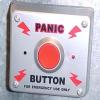 | |  |
Login to get fewer ads
| Scotland and the 45 on 23:57 - Nov 19 with 445 views | WeWereZombies |
| Scotland and the 45 on 19:17 - Nov 19 by Guthrum |
I don't think there's any likely circumstance under which the Jacobites could have won in 1745-6.
If they'd carried on towards London, two armies were converging on them from different directions, together greatly outnumbering Charles' forces. Surrounded, hundreds of miles from their support base, even a Highland charge (from the rapidly shrinking numbers who had marched south - desertion was rife) wouldn't have got them out of that. They had very little in the way of cavalry or artillery.
The chance of George II giving up and fleeing as James II had was practically nil. Both contemporaries and modern historians thought that. He had no need to, the army and most of the political structure stayed loyal (unlike in 1688).
Having retreated, they didn't have the forces to hold onto southern Scotland and, once pushed north to Inverness, lacked any kind of real power base to sustain the rebellion. |
Interesting Inverness historical snippet. I was walking down Church Street the other week and noticed a National Trust for Scotland site called Abertaff House giving free entry...in I went. Really just one room with some information boards, one of which settled a small puzzle in my mind. There is an area, which is now mainly industrial and retail units, called 'The Citadel' but it was where Cromwell's troops marched in and set up shop (I had no idea they made it this far north.)
'But it's flat as a pancake' I said to the custodian.
'Well as soon as the Roundheads moved on elsewhere the locals flattened the citadel' he said.
Still, I find it a bit heartening that Inverness remained something of a Covenanter stronghold amongst the Royalists (whether loyal to the Crown of the Union or a Pretender) in the surrounding area.
https://www.nts.org.uk/visit/places/abertarff-house | 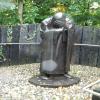 |
|  |
| Scotland and the 45 on 00:14 - Nov 20 with 433 views | Guthrum |
| Scotland and the 45 on 23:57 - Nov 19 by WeWereZombies |
Interesting Inverness historical snippet. I was walking down Church Street the other week and noticed a National Trust for Scotland site called Abertaff House giving free entry...in I went. Really just one room with some information boards, one of which settled a small puzzle in my mind. There is an area, which is now mainly industrial and retail units, called 'The Citadel' but it was where Cromwell's troops marched in and set up shop (I had no idea they made it this far north.)
'But it's flat as a pancake' I said to the custodian.
'Well as soon as the Roundheads moved on elsewhere the locals flattened the citadel' he said.
Still, I find it a bit heartening that Inverness remained something of a Covenanter stronghold amongst the Royalists (whether loyal to the Crown of the Union or a Pretender) in the surrounding area.
https://www.nts.org.uk/visit/places/abertarff-house |
It was Cromwell (or, at least, his troops) who built the first fort at Fort William. |  |
|  |
| Scotland and the 45 on 07:38 - Nov 20 with 372 views | Churchman |
| Scotland and the 45 on 00:14 - Nov 20 by Guthrum |
It was Cromwell (or, at least, his troops) who built the first fort at Fort William. |
Attached is a good summary of the Anglo-Scottish wars of 1650-1652. Not only did Cromwell’s mob (including Fairfax, Monck etc) roam about Scotland, but the Scot’s/Royalists made it as far as Worcester under Charles 2nd and Leslie in no time at all. Mind you, it didn’t end so well for them.
https://en.wikipedia.org/wiki/Anglo-Scottish_war_(1650%E2%80%931652)
It is something I know little about but I guess that it was war (power seeking) between nations but within nations. Parliamentarians v Royalists. Religion, Perceived support v lack of support. A king of a two countries in Charles 1st replaced by a Protectorate in one with his son wanting his throne back (and getting it 8 years later). Failed alliances you name it.
It never ceases to amaze me how the histories of the nations of theses islands are so utterly interwoven. [Post edited 20 Nov 7:53]
|  | |  |
| Scotland and the 45 on 08:49 - Nov 20 with 334 views | WeWereZombies |
| Scotland and the 45 on 00:14 - Nov 20 by Guthrum |
It was Cromwell (or, at least, his troops) who built the first fort at Fort William. |
Ah, that explains why the place is so grim... |  |
|  |
| Scotland and the 45 on 09:11 - Nov 20 with 299 views | Churchman |
| Scotland and the 45 on 08:49 - Nov 20 by WeWereZombies |
Ah, that explains why the place is so grim... |
Ha! Good general and leader though he was, Cromwell seemed to have been a real miserable b’stard.
Shrouded in mystery, his head quite possibly still exists, of course so in theory you could still meet him! |  | |  |
| Scotland and the 45 on 09:31 - Nov 20 with 268 views | DJR |
| Scotland and the 45 on 18:36 - Nov 19 by Churchman |
It’s an interesting question. My understanding is that Scotland was already changing, as was the rest of Britain. The Stuarts were an odd bunch and not popular, but then neither were their successors.
Had the Jacobites won the problem with Charles was his religion, which had seen James 2nd booted out and his belief in the divine right of Kings. That would have led to exile or another Civil War. Parliament would never have given in to the King having already lopped Charles 1st’s head off.
Charles 2nd (the not so merry monarch) wrested back certain powers, such as to break his agreement and see the 59 Regicides hunted down and to spend boatloads of money, but he was always subject to the will of parliament and could only go so far.
In terms of Scottish Enlightenment my knowledge of it is woefully inadequate, but the roots of it long pre-date the Jacobites. Following 1707, while its Parliament moved to London ankle its structures from law, to religion to universities and learning remained the same and different to this day.
I think you could argue that had the Jacobites won you might have seen more English enlightenment, but it’s a big ‘might’ given England’s structures had also long been in place and within half a century the Agrarian then Industrial Revolutions would come rolling in driven by amazing people from across Britain. |
I suppose it was the reimposition of Catholicism that I was thinking off (although I realise that that would have been impossible in Scotland, and as you suggest would probably have been too late to change thing anyway.)
I say this because of the impact that Protestantism had on the Scottish Enlightenment, as evidenced by the following passages from Wikipedia.
"The humanist-inspired emphasis on education in Scotland culminated in the passing of the Education Act 1496, which decreed that all sons of barons and freeholders of substance should attend grammar schools. The aims of a network of parish schools were taken up as part of the Protestant programme in the 16th century and a series of acts of the Privy Council and Parliament in 1616, 1633, 1646 and 1696 attempted to support its development and finance. By the late 17th century there was a largely complete network of parish schools in the Lowlands, but in the Highlands basic education was still lacking in many areas.
By the 17th century, Scotland had five universities, compared with England's two. After the disruption of the civil wars (Wars of the Three Kingdoms), Commonwealth and purges at the Restoration, they recovered with a lecture-based curriculum that was able to embrace economics and science, offering a high quality liberal education to the sons of the nobility and gentry.
The Scottish Enlightenment owed much to the highly literate culture of Scottish Presbyterianism. The eighteenth century saw divisions and dispute between hard-line traditional Calvinists, Enlightenment influenced Moderates, and increasingly popular Evangelicals. Moderate clergy, with their emphasis on reason, toleration, morality and polite manners, were ascendant in the universities. Some of the leading intellectual lights of the Scottish Enlightenment were Presbyterian ministers, such as William Robertson (1721–93), historian and principal of the University of Edinburgh. The careers of sceptics, such as Adam Smith and David Hume, owed much to the tolerance, support and friendship of Moderate clergy. [Post edited 20 Nov 9:52]
|  | |  |
| Scotland and the 45 on 10:14 - Nov 20 with 248 views | Guthrum |
| Scotland and the 45 on 09:11 - Nov 20 by Churchman |
Ha! Good general and leader though he was, Cromwell seemed to have been a real miserable b’stard.
Shrouded in mystery, his head quite possibly still exists, of course so in theory you could still meet him! |
Less so in person, apparently. Was a big lover of secular music (just not in a religious context), used to host jam sessions round his house while Lord Protector. He and his wife seem to have remained very down-to-earth.
His popular reputation has been tied up with that of the Puritans and the actions of Parliament, which in the late 1640s was largely controlled by Presbyterians*, a different non-conformist grouping to the Independents, to which Cromwell belonged. Also seen through the lens of post-Restoration CofE establishment writing, wishing to blacken his reputation and make a contrast with the religious situation during the republic.
* Scots-influenced Calvinist grouping who did have a reputation of grimness, or at least of wanting to avoid any ceremony or celebration which might carry the hint of Catholicism. The Independents were among the ancestors of modern Baptists. |  |
|  |
| Scotland and the 45 on 12:17 - Nov 20 with 203 views | Guthrum |
| Scotland and the 45 on 07:38 - Nov 20 by Churchman |
Attached is a good summary of the Anglo-Scottish wars of 1650-1652. Not only did Cromwell’s mob (including Fairfax, Monck etc) roam about Scotland, but the Scot’s/Royalists made it as far as Worcester under Charles 2nd and Leslie in no time at all. Mind you, it didn’t end so well for them.
https://en.wikipedia.org/wiki/Anglo-Scottish_war_(1650%E2%80%931652)
It is something I know little about but I guess that it was war (power seeking) between nations but within nations. Parliamentarians v Royalists. Religion, Perceived support v lack of support. A king of a two countries in Charles 1st replaced by a Protectorate in one with his son wanting his throne back (and getting it 8 years later). Failed alliances you name it.
It never ceases to amaze me how the histories of the nations of theses islands are so utterly interwoven. [Post edited 20 Nov 7:53]
|
The war of the early 1650s was really to do with a falling out between the victors of the First Civil War. Largely over money (paying for Scots participation in the fighting in England 1644-46), but also the parts of that agreement relating to the imposition of Presbyterianism on the English church (favoured by the large Presbyterian faction in Parliament, but opposed by the New Model Army and its leaders).
Some of the events were triggered by internal conflict between moderate and hard-line Presbyterian elements of the Scots leadership, with the latter purging their rivals, then falling flat on their faces with the improbable defeat at Dunbar.
Charles II was largely a pawn the Scots were using as leverage in their dispute with England, rather than their being any real dedication to the royalist cause. Indeed, he was forced to agree to a raft of harsh conditions (see cartoon). Which left him less than favourable to the Presbyterian/Covenanter cause when he did come to the throne a decade later.
 |  |
|  |
| |